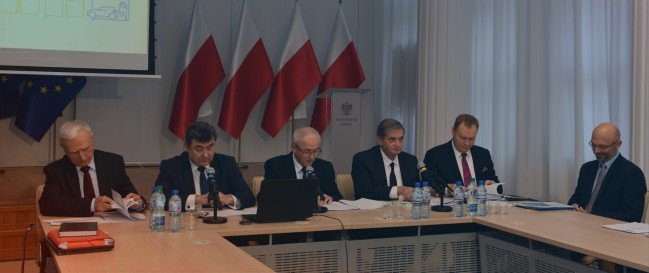Polish Energy Policy until 2040 | First commentary of Forum Energii
Today, the Ministry of Energy presented the State Energy Policy outline for consultation – a welcome announcement. We consider this a basis for public discussion, in which energy and environmental experts, business representatives and the broader society alike should participate. Energy affects all of our lives. Particularly at times of high energy prices we have to think about what to do next.

The most important conclusions:
Replacing lignite with nuclear energy
- The Ministry of Energy plans to replace lignite with nuclear energy after 2030. Nuclear energy is a zero-emission source. If lignite finishes and a nuclear power plant is not built, this will pose a significant risk to the energy security of the state. The nuclear power construction plan has been in existence for 10 years, but the financing model, plan of action and location are still missing.
CO2 emissions and carbon
- The Ministry of Energy reassessed previous declarations. Without taking into account cogeneration, we will reach 50% of coal by 2030, and not 20 years later as was announced by the Ministry. According to our analysis, by 2050 the share of coal will be around 20-25%.
- The potential for reducing emissions is greater than 30% in 2030, especially considering energy efficiency and the development of RES. It is good, however, that the Ministry refers to the year 1990, which is common for the entire European Union, and not 1988, after which significant emissions reductions took place but as a result of the economic crisis.
The share of RES
- According to its declarations, the Ministry takes offshore wind farms into account, which is a positive signal. In the 2040 perspective, we are of the opinion that the long-term potential is bigger than declared, but we have to start somewhere.
- It is good that the Ministry takes into account the development of solar energy. Considering the declining costs and system needs (summer peaks of electricity demand), the development of solar energy may be underestimated. Above all, wind farms should appear faster in the Polish energy system.
- The Ministry of Energy predicts the end of onshore wind power. Onshore wind energy is the cheapest option, and the last auction results at the level of 200 PLN / MWh show that the potential for development is greater. This is not consistent with the energy market reform plans, which Poland plans to introduce to make the energy system more flexible.
Using the potential of heating - cogeneration
- The proposition for cogeneration development is not consistent with the intentions of the bill on the support for cogeneration. There is no visible increase in power from cogeneration, production growth is marginal. There is potential to double production, but that is not reflected. The development of heating is important for an effective fight against smog.
Date of publication::
23 November 2018
